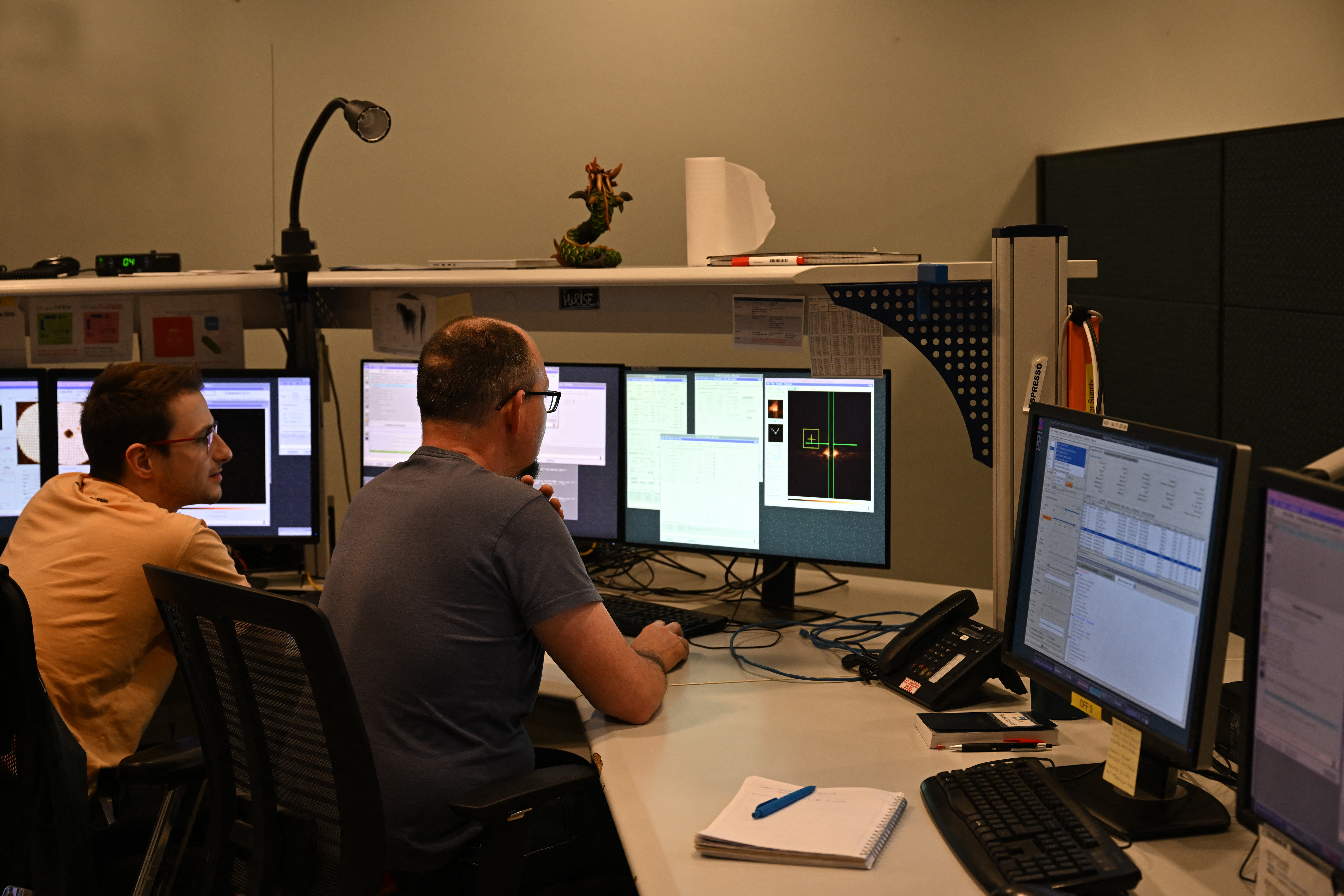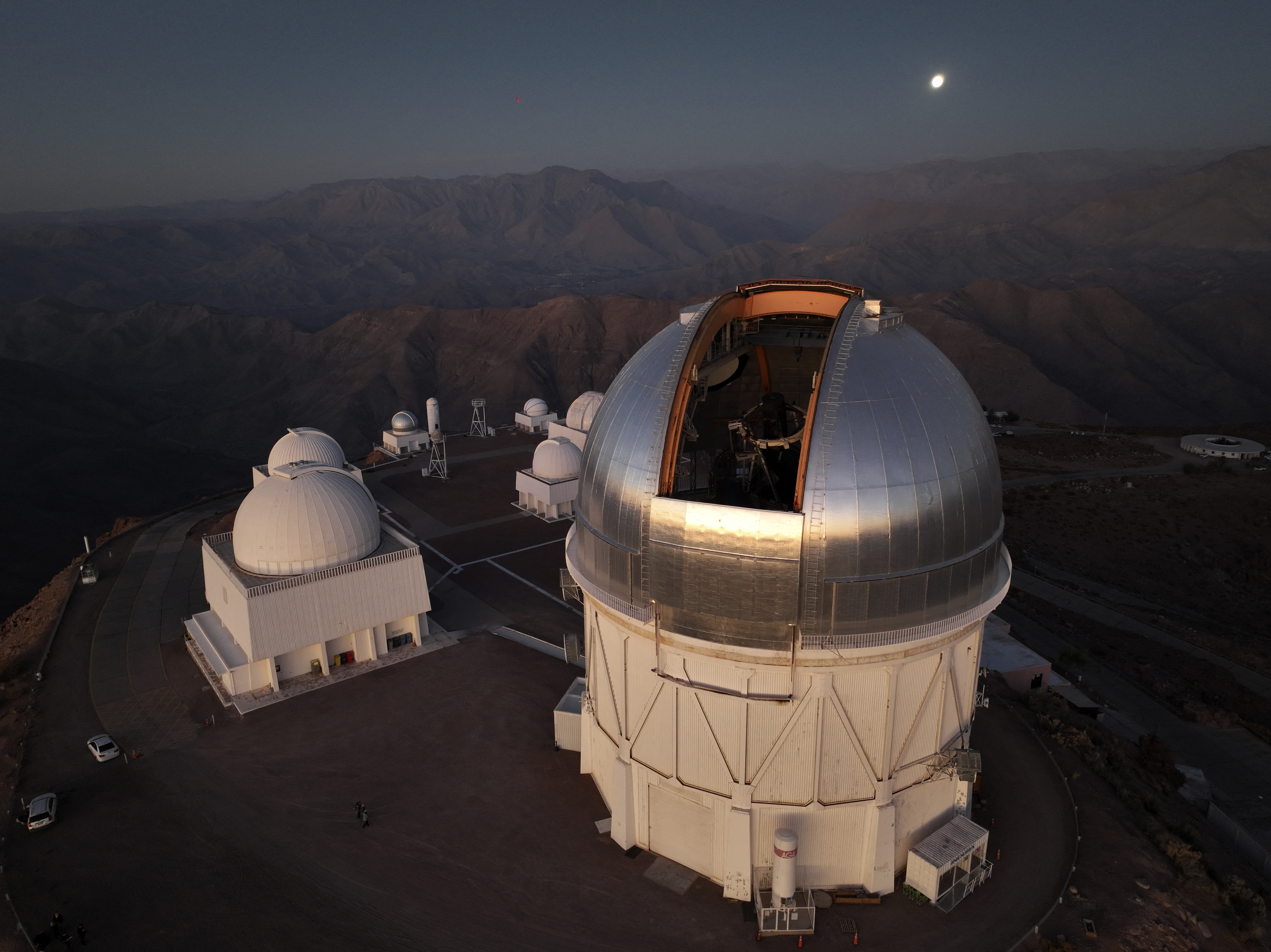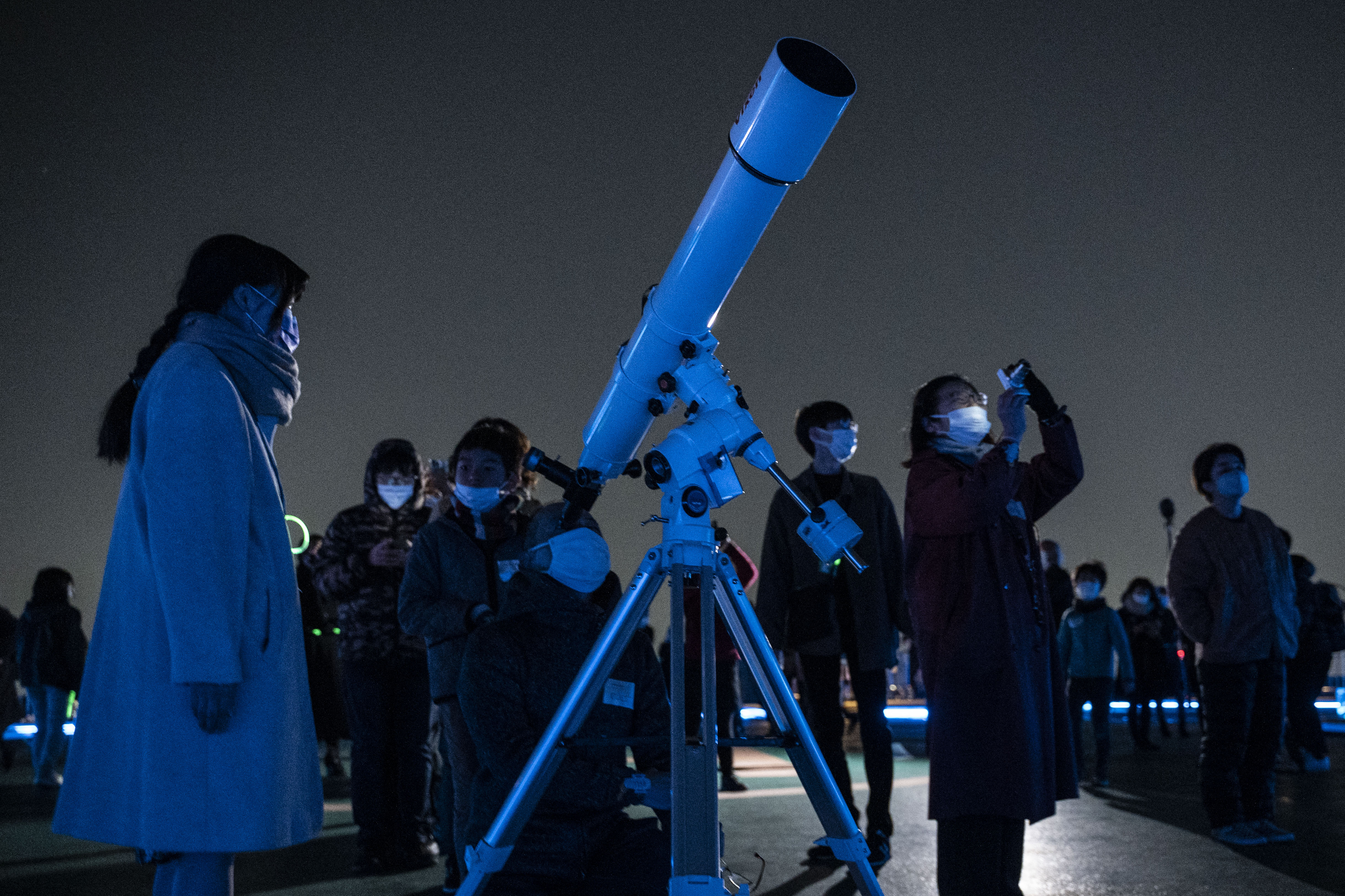
Not all who wander are lost — some are just following the stars.
Sure, the UK, US, and Australia are key players when it comes to studying everything beyond the stars, but they’re not the only places where you can chase galaxies, study black holes, or ask big cosmic questions.
In fact, if you’re after a degree in astronomy and a unique perspective, you might want to look elsewhere.
There are countries where tuition is cheaper, skies are clearer (and darker), and research is just groundbreaking — if not, more connected to the world around it.
But before we explore the best countries to pursue a degree in astronomy, let me answer a common and concerning question.

There’s an estimate of 100 to 200 billion galaxies in the observable universe. Source: AFP
“What can I do with a degree in astronomy?”
A degree in astronomy opens doors to a whole galaxy (not literally) of exciting and diverse careers, with some being out of this world (also not literally).
But there are definitely more career paths for those with a degree in astronomy than what most people think:
Astronomer/Astrophysicist
You’ll conduct research at universities or national observatories to study everything from the universe and black holes to exoplanets and celestial bodies. You’ll also spend your days analysing data and running simulations.
Professor
You’ll be teaching astronomy and astrophysics to the next generation at all educational levels, as well as conducting research.
Planetarium director/manager
Developing and implementing public outreach programmes, as well as managing operations at planetariums, will be a part of your job. TL;DR, you’ll be the curator of cosmic storytelling.
Data analyst
Using your data analysis and programming skills, you’ll be able to enter fields like finance, AI, software development, or scientific research.
Satellite technician
You know the metal objects that orbit Earth? Yeah, satellites. Well, you’ll be working on the systems that help us navigate, communicate, and observe Earth (and beyond) from above.

There are likely well over 1,000 observatories worldwide. China and Chile are home to the world’s largest telescopes, the 500-metre Aperture Spherical Telescope and the Extremely Large Telescope (ELT), respectively. Source: AFP
Observatory technician/engineer
Designing, maintaining, repairing, and upgrading technical equipment at astronomical observatories and laboratories will be your thing. You’ll ensure the proper use of planetarium and observatory equipment and systems by monitoring activities.
Aeronautical engineer
You’ll help design spacecrafts, satellites, or even rockets. Your physics, maths, and astronomy background will make you an excellent fit for building things that fly way above the clouds.
Meteorologist/Climatologist
Studying weather patterns and climate trends on Earth will be your focus. Believe it or not, your planetary science knowledge translates well to understanding our own atmosphere.
Astrobiologist
You’ll be searching for life beyond Earth — yeah, we’re not kidding. Combining biology, chemistry, and astronomy, you’ll explore what life could look like elsewhere in the universe.
As you can see, an astronomy degree launches you into a universe of possibilities (pun fully intended).
Now, where you study it can shape your journey just as much as what you study, and studying it abroad is the way to go.

Anitha Raj is a PhD in Astronomy candidate at the University of Atacama. Source: Anitha Raj
Here’s why you should study astronomy abroad
Studying abroad is the only way for many to pursue a higher education, especially for a degree in astronomy.
Anitha Raj, an Indian PhD candidate in Astronomy, is one of them.
“In India, we don’t have a lot of options to pursue a higher education in astronomy, and even if they were, we would have to pursue a few entrance exams that don’t guarantee our enrollment,” says Raj. “So, all I could do was to pursue a master’s in physics.”
When it came to obtaining her PhD, Raj knew that moving abroad was the only option.
Today, she is in her final year of her PhD in Astronomy at the University of Atacama in Chile. And it has been the best years of her life.
“We get clear skies in Chile, and all the big observatories are here,” Raj shares. “The local people are lovely too; they’re so patient and caring that learning a new language became easier for me over time.”
Rent is reasonable, and there are also PhD stipends for candidates.
Sounds pretty amazing. So, if you’re ready to swap the familiar for the extraordinary, here are five countries where you can pursue a degree in astronomy.
5 best countries to pursue a degree in astronomy
Chile
Chile is the best place in the world to study astronomy, and it’s all thanks to its clear skies and high-altitude deserts.
It’s home to major observatories like ALMA, La Silla, Vera Rubin, Paranal, and Las Campanas Observatory. In fact, the Vera Rubin Observatory is the single largest observatory in Chile, designed to map the entire southern sky.
Chilean universities, such as the University of Chile, Pontificia Universidad Católica de Chile, and the University of Atacama, have strong astronomy programmes that collaborate closely with international institutions (European Southern Observatory and the French–Chilean Laboratory for Astronomy).
You’ll be required to learn Spanish. Anitha Raj assures you that Chileans are patient and will help you through your journey.
Other Chilean universities that offer a degree in astronomy include:

China holds the oldest surviving star catalog and the first detailed recording of a supernova (the Crab Nebula) in 1054 AD. Source: AFP
China
With major projects like the FAST telescope — the world’s largest radio telescope — and ambitious space missions to the Moon and Mars, Chinese unviersities have front-row seats to cutting-edge discoveries.
In fact, the country aims to be a top space-faring nation by 2050, backed by significant funding and an emphasis on lunar exploration, Mars missions, and advanced research centers.
Tsinghua University and Peking University are the top universities in the world for the field, according to the QS World University Ranking by Subjects in Physics and Astronomy.
Peking University has made significant contributions to astronomy, including the discovery of the most massive black hole in the early universe, Hoptunes — a new population of exoplanets — and the largest protocluster of galaxies.
Other Chinese universities that offer a degree in astronomy include:
Germany
Germany is home to institutions like the Max Planck Institute for Astronomy and close ties to the European Space Agency (ESA).
The country has made significant contributions to astronomy, particularly in radio astronomy with the Effelsberg telescope, infrared astronomy through projects like instruments for the European Southern Observatory (ESO), and in the development of instruments for major international observatories and space missions such as the James Webb Space Telescope and the European Extremely Large Telescope (E-ELT).
Universities such as Heidelberg University and the University of Munich have strong astronomy and astrophysics programmes, which have been ranked in the QS World University Rankings by Subject in Physics and Astronomy.
Other German universities that offer a degree in astronomy include:

Finland is home to the Aurora Borealis (Northern Lights) during dark, clear nights, especially in the Lapland region from September to April. Source: AFP
Finland
The country played a key role in capturing the first persistent images of a black hole, thanks to the Event Horizon Telescope Collaboration and researchers from the University of Turku and Aalto University. Today, the Metsähovi Radio Observatory continues the work, scanning deep space for black hole activity.
Over at FORESAIL-1, a space debris programme, the University of Helsinki is helping to clean up Earth’s orbit by helping satellites re-enter the atmosphere and burn up after use. It’s a smart, scalable fix to a growing problem: space junk.
If you want a future with curiosity, coding, climate thinking, and global teamwork, Finland’s the place to be. Other Finnish universities that offer a degree in astronomy include:

Japana discovered the 13.1-billion-year-old galaxy with the ALMA telescope. Source: AFP
Japan
The Okayama 3.8M Telescope, the largest in East Asia, was built by leading Japanese universities and research institutes to study space with high speed and precision. It has captured rare light variations from black holes and stars, helping scientists understand cosmic explosions and solar-like activity.
At the University of Tokyo, researchers used artificial intelligence to create the most detailed map of molecular clouds in the Milky Way. They identified around 140,000 clouds, calculated their size and mass, and mapped their distribution across the galaxy.
In 2023, Kindai University revealed a new map of dark matter with never-before-seen detail, helping scientists better understand what dark matter is and how it shapes the universe.
If you have similar big questions about space and physics, joining the unis above will be a great way to uncover more mysteries.
Other Japanese universities that offer a degree in astronomy include:







